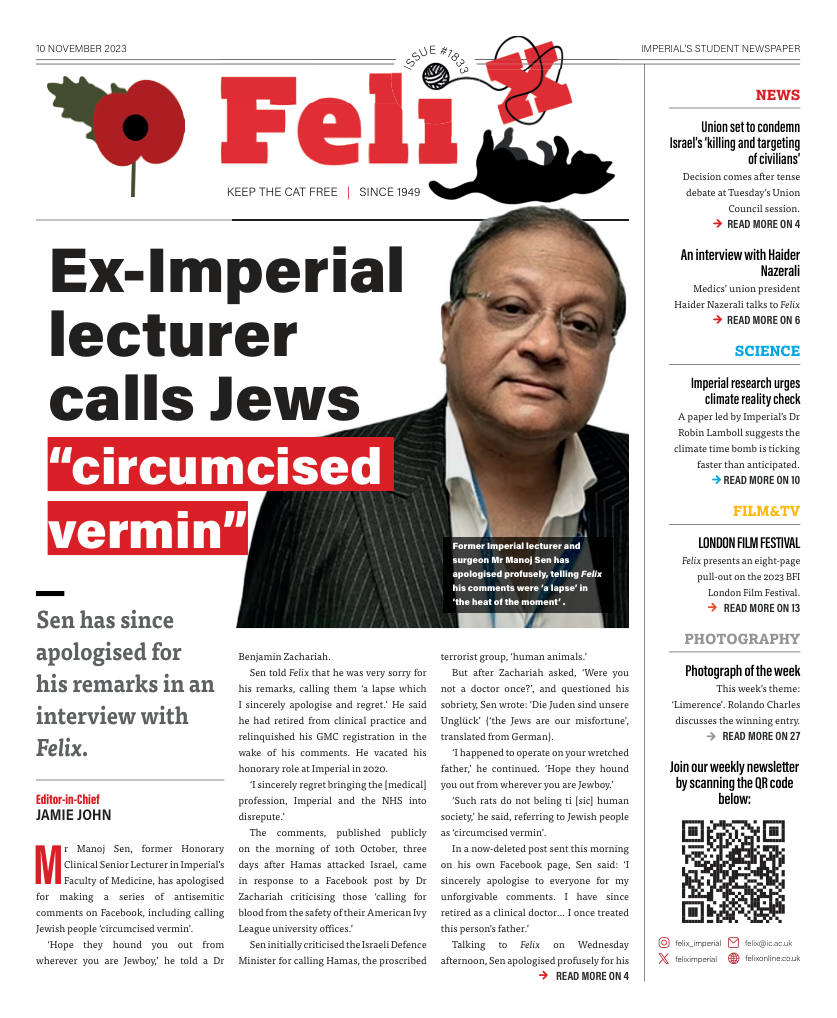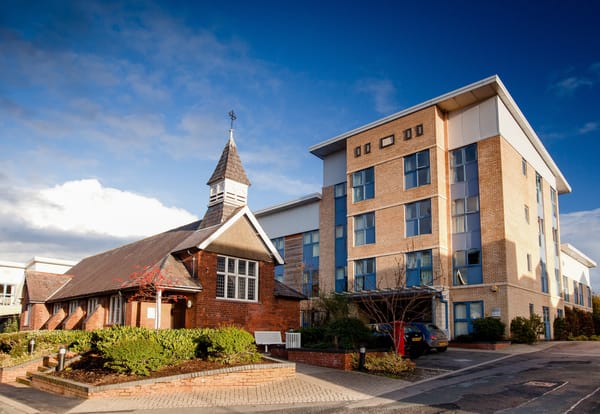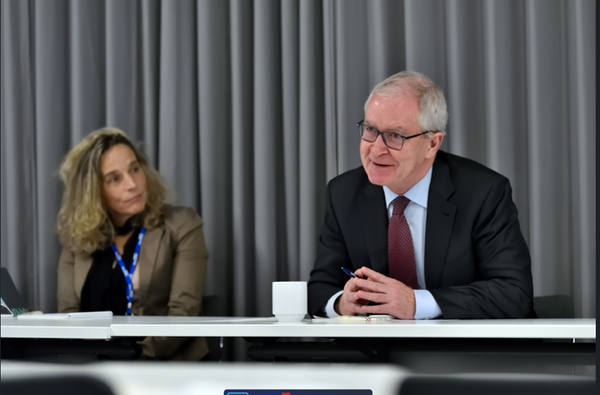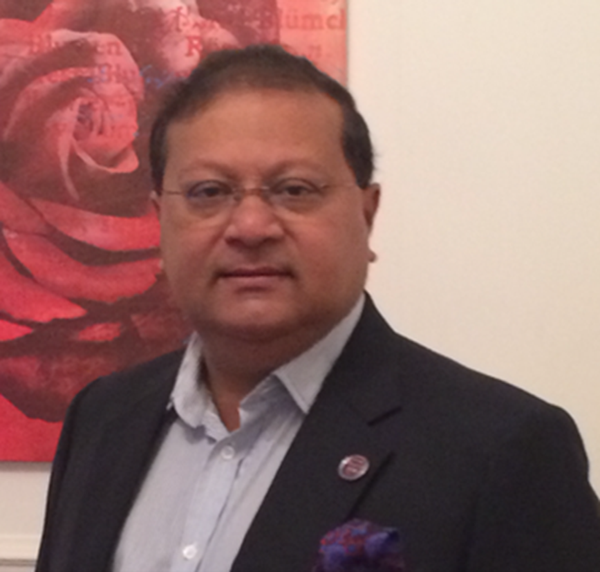Union set to condemn Israel’s ‘killing and targeting of civilians’
Subject to approval by its board of trustees, the Union will lobby Imperial to do the same.
Imperial College Union’s [ICU] student council has called on Imperial to ‘condemn the killing and targeting of civilians’ in Gaza.
Imperial has so far steered clear of outright condemnation of Israel. It has criticised Hamas’s ‘terrible attacks’ and ‘the escalation of violence in Gaza’.
Its response has infuriated students. Imperial College President Hugh Brady has taken flak for comments he made at Imperial’s graduation, in which he referred to “the rapidly escalating conflict and humanitarian crisis in Gaza”.
Speaking to Felix two weeks ago, one Palestinian student called Brady’s “passive” language “disgraceful”, criticising him for his framing of Israel’s retaliatory attacks on Gaza.
Union votes to support motion
In a motion put to Council on Tuesday, a group of nine students led by Imperial medics’ union (ICSMSU) president Haider Nazerali accused both Imperial and ICU of ‘disregard[ing] the voices of the wider community of students on campus, who have expressed solidarity for Palestine.’
They said that ‘the absence of a statement’ condemning Israel’s actions in Gaza had left students ‘feeling disenfranchised… losing confidence in the Union’s ability to represent their views.’
Union Council voted to support the motion, meaning that, subject to the approval of the Union’s board of trustees, ICU will ‘take an official public stance’ condemning Israel for its ‘killing and targeting of civilians’ in Gaza, and will lobby the university to do the same.
Students argue over ‘war crimes’ phrasing
Over a fraught one-hour period, ICSMSU President Nazerali and ICU President Camille Boutrolle wrangled over the wording of the motion.
One point of contention was the characterisation of Israel’s actions. The original motion brought to Council called Israel’s retaliatory attacks ‘war crimes’.
But Boutrolle asked for the phrase to be removed, arguing that it “could have legal implications for the Union.”
Nazerali observed that Craig Mokhiber, upon stepping down from his post as the New York director of the UN’s human rights body, had called Israel’s actions genocide. Nazerali said that genocide fell within the definition of a war crime.
“I don’t think the argument is about the definition,” said Boutrolle, “but more that such language has not been used by any official government organisation, so we feel this could lead to big reputational costs.”
After further discussion – and input from non-Council members present to support the motion – students agreed upon ‘the killing and targeting of civilians’ as a suitable substitute for ‘war crimes’.
“Saying nothing is louder”
Towards the end of proceedings, Postgraduate Faculty of Natural Sciences representative Alex Auyang warned Council members to “be cautious about taking political stances, especially given Hugh Brady’s comments – him having to backtrack and change his stance based on different student groups being upset at different times.”
‘I don’t know whether this is going to upset more students than doing nothing.’ Auyang’s comments incensed one student observer, who argued that in the light of Brady’s “very evident bias” and support of “one side over the other”, the Union had a moral imperative to condemn Israel’s attacks on Gaza.
Bringing the discussion to a close, Nazerali said: “I do think there are rare occasions where it is important to make a statement. In some circumstances, saying nothing is louder.”








